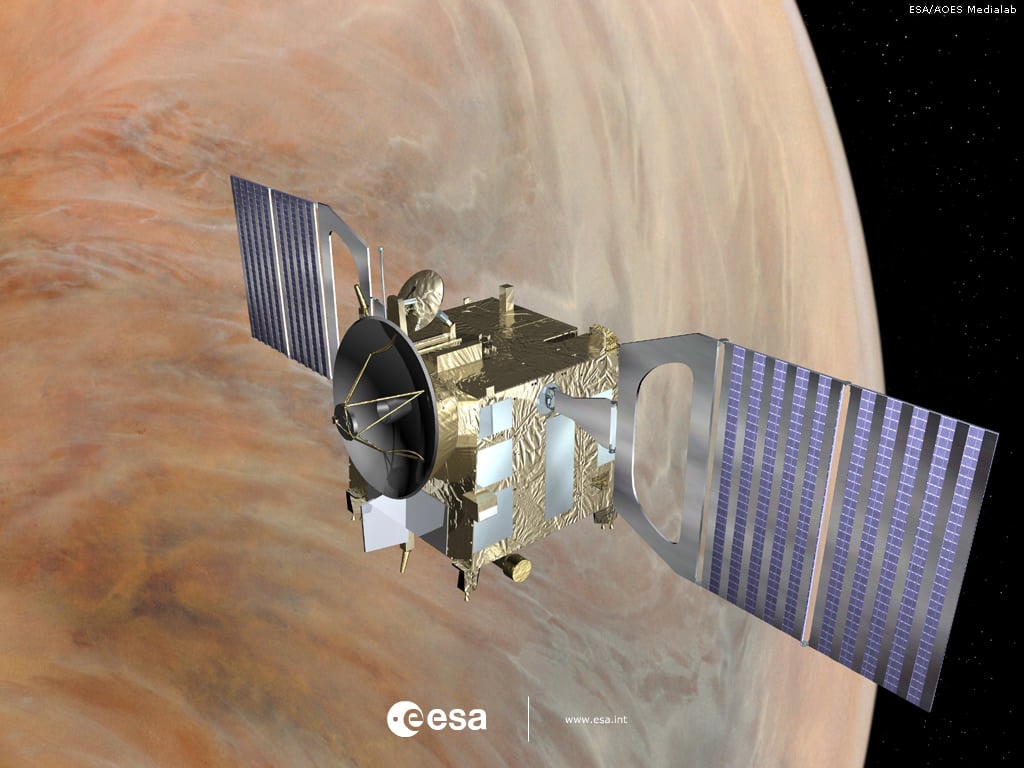New measurements from
ESA's Venus Express
spacecraft shows that Venus' rotation rate is about 6.5 minutes slower than previous measurements taken 16 years ago by the Magellan spacecraft. Using infrared instruments to peer through the planet's dense atmosphere, Venus Express found surface features weren't where the scientists expected them to be.
"When the two maps did not align, I first thought there was a mistake in my calculations as Magellan measured the value very accurately, but we have checked every possible error we could think of," said Nils Müller, a planetary scientist at the DLR German Aerospace Centre, lead author of a research paper investigating the rotation.
[/caption]
Using the VIRTIS infrared instrument, scientists discovered that some surface features were displaced by up to 20 km from where they should be given the accepted rotation rate as measured by the Magellan orbiter in the early 1990s.
Over its four-year mission, Magellan determined the length of the day on Venus as being equal to 243.0185 Earth days. But the data from Venus Express indicate the length of the Venus day is on average 6.5 minutes longer.
What could cause the planet to slow down? One possibility may be the raging weather on Venus. Recent atmospheric models have shown that the planet could have weather cycles stretching over decades, which could lead to equally long-term changes in the rotation period. The most important of those forces is due to the dense atmosphere – more than 90 times the pressure of Earth's and high-speed weather systems, which are believed to change the planet's rotation rate through friction with the surface.
Earth experiences a similar effect, where it is largely caused by wind and tides. The length of an Earth day can change by roughly a millisecond and depends seasonally with wind patterns and temperatures over the course of a year.
But a change of 6.5 minutes over a little more than a decade is a huge variation.
Other effects could also be at work, including exchanges of angular momentum between Venus and the Earth when the two planets are relatively close to each other. But the scientists are still working to figure out the reason for the slow down.
These detailed measurements from orbit are also helping scientists determine whether Venus has a solid or liquid core, which will help our understanding how the planet formed and evolved. If Venus has a solid core, its mass must be more concentrated towards the center. In this case, the planet's rotation would react less to external forces.
"An accurate value for Venus' rotation rate will help in planning future missions, because precise information will be needed to select potential landing sites," said Håkan Svedhem, ESA's Venus Express project scientist.
Venus Express will keep monitoring the planet to determine if the rate of rotation continues to change.
Source:
ESA
 Universe Today
Universe Today
